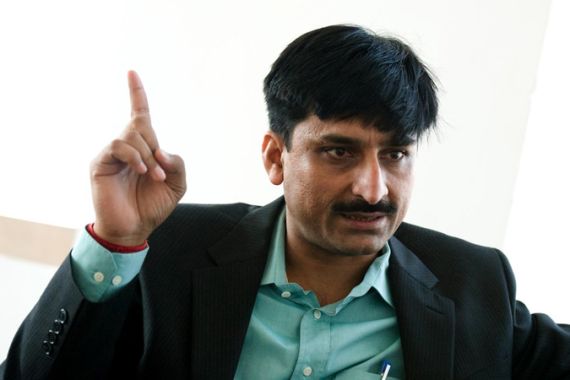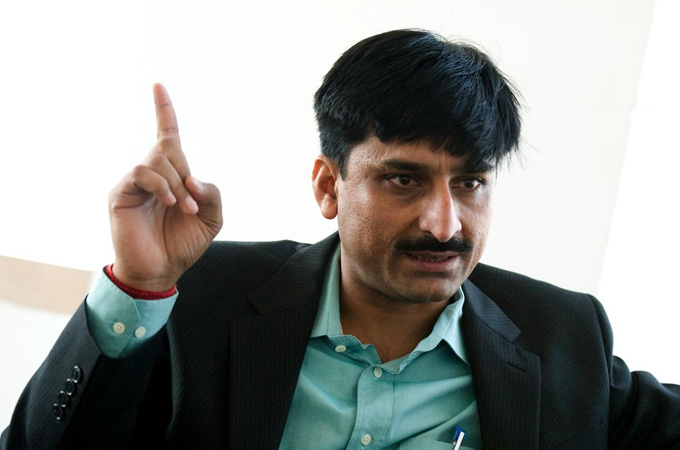Q&A with ‘censorship crusader’ Vinay Rai
Al Jazeera speaks to Vinay Rai about what motivated him to bring lawsuit against web giants, such as Facebook, in India.

 |
| “Some content available on web is dangerous for communal harmony,” says Vinay Rai [Al Jazeera] |
New Delhi, India – India’s Information Technology Act, 2008 limits the liability of Internet companies for material posted on their websites by users, including anything government regulators deem objectionable. The firms are supposed to be notified of offensive content – by users or the authorities – and then remove it when legally warranted. And now, the case against the companies brought by a 39-year-old journalist working in Akbari, a Urdu weekly, finds himself centrestage, for filing a complaint against Google, Facebook and other high profile web companies for what he calls “objectionable content”.
Vinay Rai, who has also worked as a special correspondent with one of the leading Indian news channels, Zee News, is being touted as the “censorship crusader”. Al Jazeera met Rai, soon after the Supreme Court accepted his plea on January 17, to get a better understanding of what motivated him to bring the lawsuit against the web giants.
Keep reading
list of 4 itemsPalestinian life under Israeli occupation: An illustrated guideThis article will be opened in a new browser window
Boeing’s jets turn 70: A timeline of highs, lows and turbulence
US university ties to weapons contractors under scrutiny amid war in Gaza
What has motivated you to file complaint against Google, Facebook and other big companies?
The distorted images of Goddess Saraswati makes me angry. The pictures in cartoons of Prophet Mohammed makes my friends angry. I have submitted the content to the court that deeply offends several religions, including Hinduism, Islam and Christianity. Such content is dangerous for communal harmony.
Did you approach the websites or the government before exercising the legal options?
I had approached the Information and Technology Ministry which is the nodal Ministry and have been pursuing it for over a year now. And despite several reminders, they have taken no action. They have only ordered an enquiry now. And I did not think it appropriate to approach the foreign companies myself.
But being a journalist don’t you think freedom of expression is important?
Of course, it is. But there has to be a distinction between use and misuse. Use needs to be promoted, misuse controlled. In fact, because I am a journalist and run a newspaper, a lot of readers continuously ask us if something can be done about these social networking sites. To my mind, your freedom ends where somebody’s nose begins.
But Freedom….
Interrupted by Vinay Rai
All this talk of freedom baffles me, as the man, Mahatma Gandhi, who stood for freedom in this country, finds himself trapped in many pornographic avatars in this medium. It’s not use, but abuse of freedom which I am against. Social cannot mean unilateral for a country’s unique cultural identity should not be blurred.